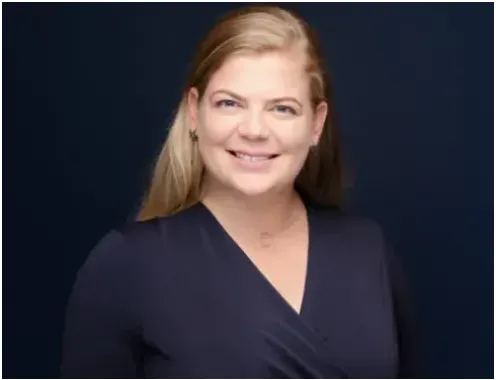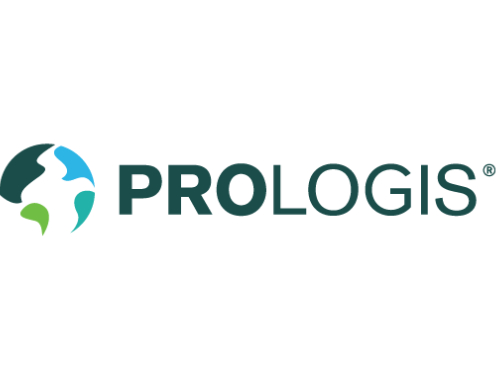Sylwia Workowska Blokhuis - Director of Accounting at Prologis


Sylwia Workowska Blokhuis is the Director of Accounting at Prologis. Having spent over 16 years building international experience as an accounting professional in publicly listed companies across various industries, she’s a progressive and team-oriented leader.
How did you plan out your career development path?
At an early stage of my life, I knew that Finance & Accounting were areas that I wanted to focus on. I chose Finance as a major for my studies and was very motivated to start gaining professional experience as soon as possible.
In my fifth year, I asked the Dean’s permission to combine my studies with professional work; that was granted as I’d had very good grades. It gave me some time to explore the professional industry, whether it was the correct choice and direction for me and whether I should proceed with it after I graduate.
It turned out to be the right direction for me; it suited my skill set and personality and kept bringing me joy; so I have continued to pursue it for the past 18 years, taking part in new projects and setting myself ambitious goals.
As I progress, I reassess my career path and strategy; whether I'm still going in the direction I want to be going in to achieve my long-term aims.
How have you managed the changes in your career and the diversity in the sectors that you've worked in as a leader?
I have worked across consumer goods, manufacturing and logistic real estate and have had the great pleasure of working in great companies that focus on their teams, each global leaders in their respective field, who provided me growth opportunities. When I switched roles it was for personal reasons versus work-related ones; and I'm happy that I made those changes because it helped me to grow and to learn about new industries.
The way I approach change is with curiosity, trying to have a learning mindset and staying very open-minded. I want to learn as much as possible about the business: its goals, its strategy, and how my team and I can be the best support.
I also believe that success is never achieved alone. If you want to be successful in what you do, you need to build strong relationships and that usually brings the best results.
How do you retain and develop the talent in the business that you're working in? And can you give me a few examples of when you've had to champion retention?
During times of transformation, the best strategy is to stay connected. Focus on relationships and gaining a strong understanding of your team's needs. What kind of challenges do they face and how can you best help address them?
I also think that using clear, transparent communication and not being afraid to bring bad news is very critical. Sharing a hard truth is ultimately better than a sugar-coated lie. It helps build trust. Just focus on bringing the message constructively.
Business transformations offer the best opportunities to grow and develop because that is when the most change is happening. Exploring through learning and making those new connections is how people grow the most and that keeps them engaged.
If you're trying to create something entirely new, it never comes with zero frustration or a super clear path in front of you. If you have a well-balanced team that has each other’s back and supports each other, they can face any of the frustrations that change brings. When people feel connected, they see a bigger cause and a bigger picture. They tend to understand the reason why things are done a certain way.
We've had a lot of changes in this world and within your industry (COVID, remote working from a cultural perspective, and more recently Ukraine). How do you motivate professionals within your business with all these changes that we've been through and still going through?
It is important to acknowledge that those changes are happening. Don't try to pretend they are not there; they are, and people experience them, and those experiences differ per person. Try to understand individually what people are going through and see how you can help and support them.
In general, I believe in an individual approach, and again being close to people with whom you are working; together you can understand a situation and the best way to support it.
COVID, of course, took some adjustment, but surprisingly both the team and I adapted quite fast to this new situation. We figured out new ways of working together in the remote environment, which meant staying connected even more. I was quite surprised to see how well we thrived in this situation.
We found creative ways to continue achieving our goals through the online environment; it was intensive in one sense but helped us foster a culture and keep the relationships that we’d built prior. Our relationships didn’t suffer in the remote environment, but it took effort to make sure that was the case.
Motivation comes down to a healthy working culture; one that stays connected, and fosters relationships in an environment that allows us to thrive. For me, that means engaging work with growth opportunities, having an impact and being empowered to make a change, great teamwork, but also well-tailored recognition and reward for performance. In my opinion, it’s good balance that keeps people happy in the workplace.
What I appreciate in my surroundings is that we can openly discuss the challenges and work together on solutions. I feel supported by my leadership team, and as explained I'm doing my best to pass on that same support to my teams. That is what gets us through challenging times.
I'm keen to understand the risks that you've taken throughout your career, how have they helped you get to the level that you are at now?
Prologis offers a dynamic environment; each year brings challenges and some type of transformation.
Recently, I agreed to step back from managing one of my teams to allow myself more time to focus on the onboarding of new business lines. I’d managed that team for 10 years and I was very connected with them. But, as you can imagine I knew the process in and out and there were fewer learning opportunities.
It was hard, but it opened countless opportunities for me to get involved and help shape the new business lines, in many cases from scratch. That meant stepping out of my comfort zone.
Every new experience brings risks and it's not easy to let go, but doing so made space for me to grow. In the long run, getting out of that comfort zone is what brings opportunity that helps you progress your career.
How do you manage business partnering and performance management?
Business partnering is a key strategy for my department. Accounting & Finance is a support function but we have to support the business in the right way.
I reach out to our partners proactively, to ensure that we understand each other’s goals, where are we coming from, the challenges that the company faces and how we can support their business decisions by delivering the correct data when it is needed. I think there’s been good progress on being a good business partner and having a good impact.
When it comes to performance management, I’m very much data-driven… the numbers speak volumes. Obviously, I have an Accounting and Finance bias there! I do my homework: present the data, cite sources and be clear in advance on what I want to communicate.
At the same time, a number is just a number, and some numbers need a story to go along with it. I try to understand the root causes of whatever we’re facing and how to address these challenges. I like to have experts from each area, a small team, to work together on tackling particular challenges and get the best expertise on that particular focussed subject.
What would you say is the most memorable moment from your career and why?
One key moment was at an early stage of my career when I became a leader of the team that I was part of. It was quite a step to manage a team where I’d previously been a colleague.
At that stage, a whole new world opened to me. I had to give some thought to what kind of manager I wanted to be and the leadership style that most suited me. That of course, took time, it didn't happen overnight.
It's not something of which you can say “Ok, I’m done. I am now a leader”. Leadership is a journey, and you keep on learning and adjusting at every step of it, including mistakes.
I believe that I learned from them and helped myself grow. I'm happy with the steps that I’ve taken throughout my career and the progress that I’ve made.
What advice would you give to aspiring leaders who want to be in the position that you're in?
Be brave and take that first step. Even if you’re not a born leader, you have to believe in yourself. Those first steps are the hardest, but once you are in that role, you will start learning and developing and progressing through that.
Continually reassess who you are and what kind of leader you want to be. At the same time, accept that you're going to make mistakes. Learn from them and don't be afraid to show vulnerability.
Understand the expertise within the team you have. Rely on it, know your processes and stay hands-on so you can guide, coach and support when needed. Last but not least, maintain communication and transparency for strong relationships. I keep coming back to that - but for me, relationships are key to driving success and you don’t achieve it alone.
The key things we say to those aspiring to get into strategic roles are to network, and never stop learning, define what kind of leader you want to be in the early stages of your career, look at the leaders who motivate you and push forward and make those steps…
Especially at the later stages, where you are in those very elevated roles, these factors impact what kind of leader you are. It's critical to define who you want to be as a leader, that's also how you will to some extent impact and foster the culture of the organisation through that.
Thank you to Sylwia for speaking to our Finance & Accountancy recruitment team in the Netherlands, led by Hannah Mallia and David Harper.
Views and opinions contained within our Executive Interviews are those of the interviewee and not views shared by EMEA Recruitment.






You can also use your social account to sign in. First you need to:
Accept Terms & Conditions And Privacy Policy